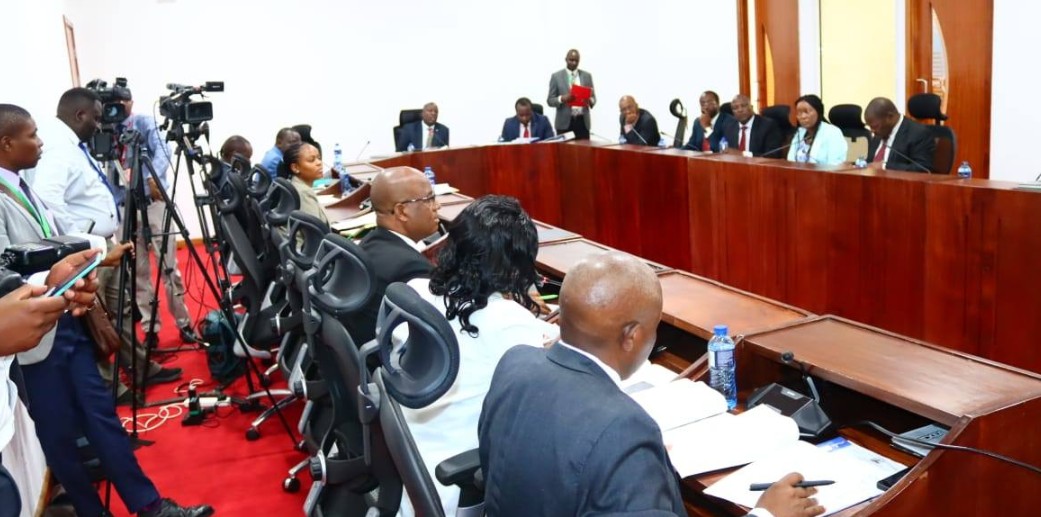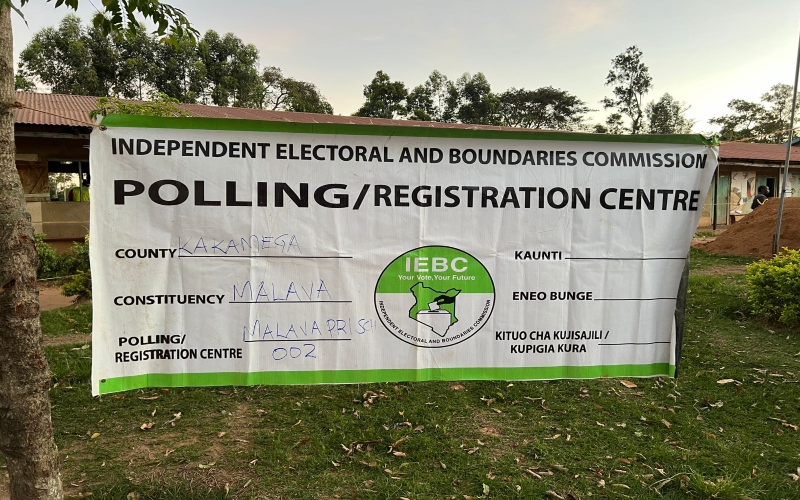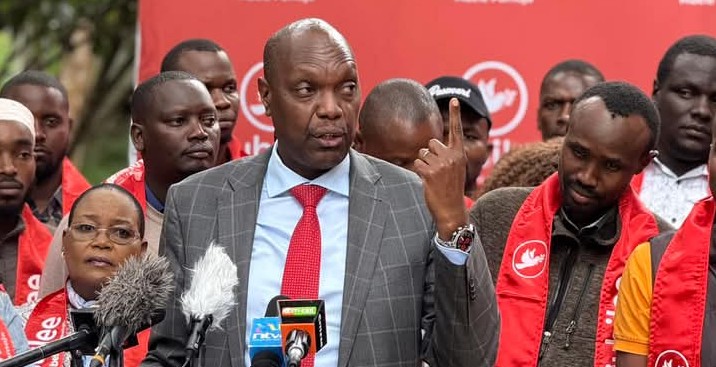Officials accused of looting school funds in widespread extortion racket targeting capitation money

The revelations emerged during a heated National Assembly debate, where MPs accused education officials of running a widespread scheme that exploits schools as soon as government funds are disbursed.
Details have emerged that government officials and school heads are allegedly running a covert extortion scheme, siphoning capitation funds meant for learners and forcing parents to pay for activities already covered by the State.
The details were revealed during a heated debate in the National Assembly, where legislators accused education officials of orchestrating a wide-scale racket that exploits schools once government funds are disbursed.
More To Read
- Over 44,000 schools cleared for capitation as audit uncovers 87,000 ghost learners
- Capitation withheld from 29 schools pending verification, Education CS Ogamba tells MPs
- Capitation crisis forces early school closures nationwide
- New funding formula aims to guarantee timely release of school capitation
- MPs urge Education Ministry to recall students sent home over delayed capitation payments
- Education ministry tightens capitation rules after billion-shilling ghost schools scandal
The revelations followed a response from the National Assembly Education Committee to a question raised by Deputy Minority Whip Robert Mbui regarding the disbursement of capitation funds to schools.
MPs said the extortion begins as soon as education officials learn that funds have reached school accounts.
Money for activities
From sub-county offices and school inspectors to regional associations and auditors, headteachers reportedly receive letters demanding money for activities that are already funded by the state.
Kilifi North MP Owen Baya told the House that some headteachers are forced to operate unofficial bank accounts under various associations to funnel funds without scrutiny.
“They operate accounts, for example, ‘Kilifi Heads Association Sports Activities.’ Monies channelled by headteachers through such accounts are not audited,” Baya said.
He urged the Public Accounts Committee to investigate the matter, saying he had evidence of these practices in his own constituency.
“When money is sent to a school, a letter is immediately issued from the sub-county education office demanding a certain amount per student—either ten or five shillings—for various activities,” Baya added.
For Junior Secondary School (JSS), the government allocates Sh140 per student for co-curricular activities. However, by the time deductions are made at various levels, schools are left with only Sh25 per learner. According to the breakdown presented, Sh85 goes to sub-county coordination, Sh20 to the sub-county office, and Sh10 to the regional association.
“There are people getting really rich off school money. This must stop. Funds released by the government must help our children, not enrich individuals,” Baya said.
Fear of retaliation
He noted that several headteachers had reported these practices but requested anonymity for fear of retaliation by senior officials.
“The headteachers are suffering. If a letter is written to you and you fail to comply, you are punished,” he said.
Legislators questioned why schools are required to remit additional funds to these associations when the capitation already provides for such activities.
MPs also claimed that inspection visits are timed to coincide with disbursements and are used to demand bribes. Some headteachers reportedly pay up to Sh50,000 for favourable inspection reports.
Auditors
Auditors, despite being funded by the Ministry, are also accused of extortion. MPs alleged that auditors receive up to Sh40,000 per school visit to cover accommodation and other expenses, all drawn from the same capitation funds.
The Kenya Secondary School Heads Association (Kessha) was also named in the scheme, with MPs saying part of the funds intended for students are being diverted to sustain its operations.
“Unless Parliament takes decisive steps and requests a special forensic audit of schools and county education offices, our students will continue to suffer and be sent home over trivial and unnecessary demands,” Baya warned.
“What the ministry says here in Nairobi and what is happening on the ground are very different. Parliament must take bold steps to investigate.
Central Imenti MP Moses Kirima said schools routinely send children home to collect levies not provided for under the Basic Education Act.
“When you drive through your constituency, you see children sent home to collect illegal levies,” Kirima said.
He accused officials at the Ministry of Education and the Teachers Service Commission of being complicit.
“The ministry should allocate resources for directors when sending them to sub-counties, so they do not demand money from headteachers,
Kirima said.
Education PS Julius Bitok denied authorising such demands.
“Financial processes for co-curricular activities and examinations are governed by approved circulars, budgets, and work plans. No officer is allowed to demand funds outside these provisions,” he said.
He emphasised that dealings with professional associations such as Kessha must be voluntary, transparent, and not funded through capitation unless authorised.
Disciplinary measures
“In accordance with government policy, any officer engaging in unethical or unlawful practices will face disciplinary measures and potential legal action, based on credible evidence,” Bitok said, adding that no formal complaints had been received so far.
Kessha National Chairman Willie Kuria admitted that school heads have opened separate accounts for co-curricular activities, but insisted these are recognised by the Ministry.
“It is true schools contribute to these activities because, at the sub-county level, they are pooled and the money is used for officials and related expenses,” Kuria said.
Kuria, also the principal of Murang’a High School, noted that although the ministry allocates money for co-curricular activities, county education officials often claim the funds are not enough.
“We have raised this concern, but when we approach county officials, they argue that the money received is inadequate. So we need clarity on how much is actually being disbursed,” he said.
“This money is sent quietly to the counties. They should disclose how much is received so we can verify these claims.”
Embakasi West MP Mark Mwenje alleged that the ministry retains up to half of the funds meant for schools.
Top Stories Today
















































